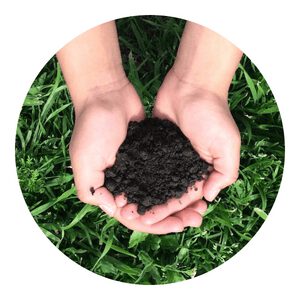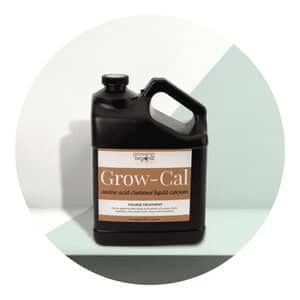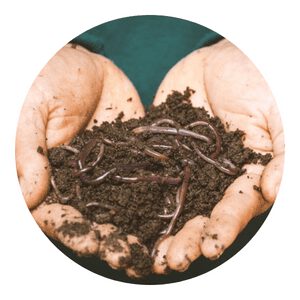Organic Fertilizer For Cucumber
Organic fertilizer is a great way to give your cucumber plants the nutrients they need without resorting to harsh chemicals.
This type of fertilizer is made from natural materials like manure, compost, and bone meal.
It’s important to read the labels carefully when you purchase organic fertilizer, so you know what you’re getting.
Some products may not be suitable for cucumbers.
Apply organic fertilizer to your cucumber plants once a month, using the amount recommended on the package.
Cucumber Fertilizer Menu
What is organic fertilizer?
Organic fertilizer is a type of fertilizer that is made from organic materials.
This includes things like manure, compost, and other plant-based materials.
It can be used to improve the fertility of soil and to help plants grow better.
Organic fertilizer is often seen as a more environmentally friendly option than synthetic fertilizers.
This is because it does not contain any harmful chemicals or pollutants.
Additionally, organic fertilizer can help improve the quality of soil over time, making it healthier for plants and animals.
The benefits of using organic fertilizer for cucumbers
Organic fertilizer is a great way to give your cucumbers the nutrients they need to grow.
Here are some benefits of using organic fertilizer for cucumbers:
1. Organic fertilizer is made from natural materials, so it’s safe for both you and the environment.
2. It’s easy to find organic fertilizer at your local nursery or gardening store.
3. Using organic fertilizer can help your cucumbers grow faster and produce more fruit.
4. It’s also a great way to add extra nutrients to your soil.
5. Organic fertilizer is relatively inexpensive, so it’s a great option for budget-conscious gardeners.
6. You can make your own organic fertilizer at home with kitchen scraps and other materials.
7. Applying organic fertilizer to your cucumber plants is easy and doesn’t take much time.
How to make your own organic fertilizer for cucumbers
Organic fertilizer is a great way to give your cucumber plants the nutrients they need without resorting to harsh chemicals.
Here’s how to make your own organic fertilizer for cucumbers:
1. Start by mixing together 1 part compost and 2 parts manure. You can also add in some other organic matter like leaves or grass clippings.
2. Spread the mixture around the base of your cucumber plants, being sure to not get any on the leaves.
3. Water the plants well so that the fertilizer can start working its way into the soil.
4. You should fertilize your cucumber plants every few weeks throughout the growing season.
The best time to use organic fertilizer for cucumbers
Organic fertilizer is the best way to provide nutrients for your cucumber plants.
However, when you use organic fertilizer, it is important to timing it correctly.
The best time to use organic fertilizer for cucumbers is when the
plants are actively growing. This usually occurs during the spring and summer months.
During this time, the plants will be able to absorb the nutrients from the fertilizer more effectively.
It is also important to fertilize your cucumber plants before they start bearing fruit.
This will help ensure that the fruits are of good quality and size.
When applying organic fertilizer, be sure to follow the instructions on the package carefully.
This will help you avoid over-fertilizing your cucumber plants, which can damage them.
The best way to grow a cucumber, Is to use organic fertilizer. You'll get bigger and better fruit, And your plants will be healthier too. So if you want to have a bumper crop, Remember to use organic fertilizer.
Chappy The Gardener
How often to use organic fertilizer for cucumbers
Organic fertilizers are an excellent way to give your cucumber plants the nutrients they need to produce healthy fruit.
However, it is important to use organic fertilizer properly in order to avoid damaging your plants.
It is generally recommended that you use organic fertilizer every two weeks during the growing season.
However, some gardeners prefer to apply organic fertilizer more frequently, typically once a week.
If you choose to fertilize more often than every two weeks, be sure to water your plants more frequently as well.
When applying organic fertilizer, always follow the manufacturer’s instructions.
Type of organic Fertilizer for cucumbers
When it comes to growing cucumbers, using the right type of organic fertilizer is important.
There are many different types of organic fertilizer on the market, so how do you know which one is best for cucumbers?
Here is a breakdown of the most popular types of organic fertilizer for cucumbers, and what each one offers:
Blood meal
Cucumbers are a type of vegetable that is commonly grown in home gardens.
blood meal organic fertilizer is a great way to provide them with the nutrients they need to grow healthy and strong.
Here are a few tips on how to use this fertilizer effectively:
1. Apply blood meal organic fertilizer around the base of cucumber plants, being sure to avoid contact with the leaves or stem.
2. Water the plants thoroughly after applying the fertilizer.
3. Repeat application every two weeks throughout the growing season.
4. When using blood meal organic fertilizer, be sure to follow the manufacturer’s instructions carefully.
5. If you have any questions or concerns about using this type of fertilizer, consult with a gardening expert or your local Cooperative Extension office for more information.
Bone meal
Organic fertilizers are becoming more popular among gardeners as they provide many benefits to plants.
Bone meal is one type of organic fertilizer that can be used for cucumbers.
It is a natural source of phosphorus and calcium, two nutrients that are essential for plant growth.
Bone meal also helps to improve the structure of the soil.
Here are some tips on how to use bone meal organic fertilizer for cucumbers.
When using bone meal organic fertilizer for cucumbers, it is important to apply it before planting.
You can mix it into the top layer of soil or amend the whole bed with it.
If you are planting in containers, add bone meal to the potting mix.
For best results, apply bone meal every two weeks during the growing season.
Worm Castings
If you’re looking for a way to give your cucumbers a nutrient-rich boost, look no further than worm castings organic fertilizer.
Here’s everything you need to know about using this type of fertilizer on your cucumber plants.
Worm castings are an excellent source of nutrients for cucumber plants.
They’re high in nitrogen, potassium, and phosphorus, which are all essential for healthy plant growth.
The castings also contain beneficial microbes that can help improve soil quality and promote plant health.
To use worm castings as an organic fertilizer, simply mix them into the soil around your plants.
You can also add them to compost or top dress your cucumber plants with them every few weeks.
Make sure to water the area well after applying the fertilizer to help the nutrients reach the roots of your plants.
Fish Emulsion
Organic fertilizer is a great way to give your cucumber plants the nutrients they need without resorting to harsh chemicals.
Fish emulsion is one type of organic fertilizer that can be used to fertilize cucumber plants.
It is made from fish waste and provides a good source of nitrogen, phosphorus, and potassium.
To use fish emulsion as an organic fertilizer for cucumbers, mix it with water according to the manufacturer’s directions.
Apply it to the soil around the base of the plant, being careful not to get any on the leaves.
Reapply every two weeks during the growing season.
Horse Manure
Organic fertilizer is becoming more and more popular as people try to live a more sustainable lifestyle.
Horse manure is a great organic fertilizer for cucumbers because it is high in nitrogen and other nutrients that cucumbers need to grow.
Here are a few tips on how to use horse manure as an organic fertilizer for your cucumber plants:
1. Spread the horse manure around the base of the cucumber plants, being sure to avoid getting any on the leaves.
2. Water the area well so that the horse manure can start to break down and release its nutrients into the soil.
3. Repeat this process every few weeks throughout the growing season.
Horse manure is an excellent organic fertilizer for cucumbers and using it is a great way to be more sustainable in your gardening practices.
Cow Manure
Cow manure is an excellent source of organic fertilizer for cucumbers. It is high in nitrogen, phosphorus, and potassium, which are essential nutrients for plant growth.
Cow manure also contains beneficial microorganisms that help to improve soil health.
To use cow manure as an organic fertilizer, simply spread it around the base of the cucumber plants.
Be sure to wear gloves when handling manure, as it can be quite smelly!
Water the area well after applying the manure, and you should see a healthy crop of cucumbers in no time!
Sheep Manure
Organically grown cucumbers are not only healthier, but they also taste better.
One of the best ways to fertilize cucumbers is with sheep manure.
Sheep manure is an excellent source of organic matter and nutrients for cucumbers.
The microorganisms in sheep manure help to break down the organic matter, making it more available for the plants.
Sheep manure also contains nitrogen, phosphorus, and potassium, which are essential for plant growth.
To use sheep manure as an organic fertilizer for cucumbers, mix it with water at a ratio of 1:10.
For example, for every 10 gallons (38 L) of water, add 1 gallon (3.8 L) of sheep manure.
Apply the mixture to the soil around the base of the plants once a month during the growing season.
Donkey Manure
If you’re looking for an organic fertilizer for your cucumbers, look no further than donkey manure.
Donkey manure is high in nitrogen and other nutrients that are essential for cucumber growth.
Here’s how to use it:
1. Collect the manure from a healthy donkey. Make sure the donkey has been fed a healthy diet and doesn’t have any diseases.
2. Spread the manure on your cucumber plants, being careful not to get any on the leaves.
3. Water the plants thoroughly after applying the manure.
4. Repeat this process every few weeks throughout the growing season.
Donkey manure is an excellent organic fertilizer for cucumbers and will help them grow healthy and strong.
Follow these simple instructions and you’ll be able to enjoy delicious, homegrown cucumbers in no time!
Yak Manure
Organic fertilizer is not only good for the environment, but it can also be great for your plants.
Yak manure is a type of organic fertilizer that can be used to fertilize cucumbers.
Here are some tips on how to use yak manure organic fertilizer for cucumbers:
1. When using yak manure organic fertilizer, be sure to mix it well with water before applying it to your cucumber plants.
This will help ensure that the nutrients in the manure are evenly distributed.
2. Apply the yak manure organic fertilizer around the base of the cucumber plant, being careful not to get any on the leaves or stems.
3. Water the plants well after applying the manure, so that it can begin to work its way into the soil.
Alpaca Manure
If you’re looking for an organic way to fertilize your cucumbers, look no further than alpaca manure.
Alpaca manure is an excellent source of nutrients for cucumbers, and it’s easy to use.
Here’s how to use alpaca manure as an organic fertilizer for cucumbers.
To use alpaca manure as an organic fertilizer, simply spread it around the base of the cucumber plants.
You can also add it to the compost pile.
If you’re using it fresh, be sure to age it first by mixing it with some straw or leaves.
This will help reduce the odor.
Alpaca manure is high in nitrogen and other essential nutrients that cucumbers need to thrive.
It’s also a great source of organic matter, which helps improve soil structure and drainage.
Rabbit Manure
Organic fertilizer is important for cucumber plants because it provides them with the nutrients they need to grow.
Rabbit manure is an excellent organic fertilizer for cucumbers because it is high in nitrogen and other nutrients that cucumbers need.
To use rabbit manure as an organic fertilizer for cucumbers, simply spread it around the base of the plant.
Be sure to wear gloves when you do this, as rabbit manure can be quite smelly!
Cucumber plants will benefit from a few applications of rabbit manure throughout the growing season.
Fish Manure
Cucumbers are a type of vine crop that require a lot of nutrients to produce healthy fruits.
One way to provide those nutrients is through the use of fish manure organic fertilizer.
Fish manure is full of nitrogen, phosphorus, and potassium, which are all essential nutrients for cucumber plants.
To use fish manure organic fertilizer, mix it with water at a ratio of 1 part fertilizer to 10 parts water.
Then, apply the mixture to the base of the cucumber plants.
Be sure to avoid getting the mixture on the leaves, as it can burn them.
Apply the fertilizer once per week during the growing season.
In conclusion, organic fertilizers are a great way to avoid harmful chemicals.
While they may take a little more time to establish, the benefits of using them are clear.
If you’re looking to improve your garden’s health and increase yields, transitioning to organic fertilizer is a great way to start.
Click To Grow
Helps Us Grow – Share If You Like


















